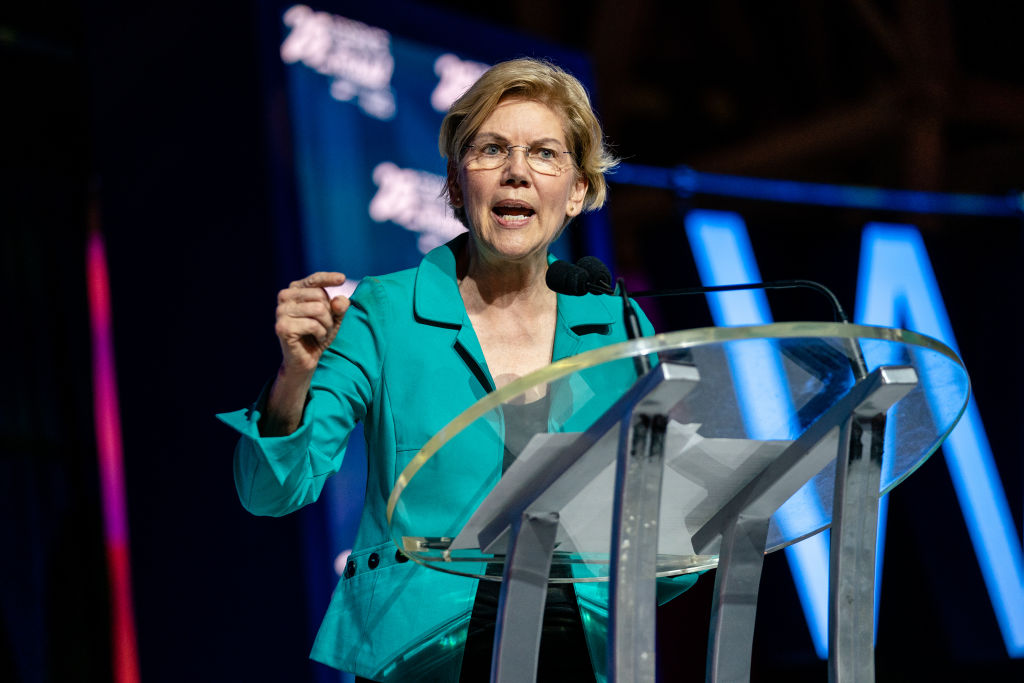
Rural America encompasses 19% of the United States’ population, generates 99% of its wind energy and cultivates the overwhelming majority of its agriculture. Yet, people who live in rural communities are more likely to fall beneath the federal poverty line, less likely to obtain a college education and often face unique barriers in acquiring medical care.
Sen. Elizabeth Warren has a plan to bridge some of these gaps if elected President.
The Democratic senator from Massachusetts is slated to release plans on Wednesday that aim to attract medical professionals to rural areas to improve healthcare access, create public broadband options to ensure more people have internet access, implement new farming supply management programs and incentivize farmers for embracing environmentally sustainable techniques.
“Our failure to invest in rural areas is holding back millions of families, weakening our economy, and undermining our efforts to combat climate change,” one of Warren’s soon-to-be-published Medium posts says. “It’s time to fix this.”
The supply management program, which is meant to prevent farmers from extremely volatile incomes if their products don’t sell, is among the most substantial components of her new plans. Warren explains it would guarantee farmers make at least as much as it costs them to produce a product by offering them non-recourse loans. Essentially, the loans would serve as an offer to buy farmers’ products if they can’t find private buyers before the loan period ends. For those who did not find private buyers, the government-purchased products would then be stored in reserves until prices go up and the government can release the supply back onto the market.
In addition to stabilizing farmers’ incomes, the progressive candidate also argues the policy would enhance food security by giving the government access to crops in case of a food production emergency.
“The critical problem facing farmers today is the lack of a price that covers the cost of production. Though current farm commodity programs are expensive, they still leave farmers short of the income they need to remain in production,” Harwood Schaffer, the director of the Agricultural Policy Analysis Center, says of Warren’s plan. “By design, supply management programs like the one offered by Sen. Elizabeth Warren enable farmers to receive their income from the marketplace while protecting consumers from shortages and severe price spikes in the event of a crop failure.”
If elected, Warren would also try to “decarbonize the agricultural sector” by paying farmers for embracing sustainable farming techniques, like cover crops that keep water, soil and nutrients from escaping fields. Her plans includes increasing the USDA’s Conservation Stewardship Program by $14 billion annually, too.
According to sources close to other Democratic presidential campaigns, more 2020 candidates are expected to release plans to involve farmers in fighting climate change in the coming days.
But Warren’s plans to alleviate hardship in rural America would go beyond helping just farmers, her Medium posts say.
In addition to creating an Office of Broadband Access that would manage an $85 billion grant fund, she says she’d direct the Federal Trade Commission to block future hospital mergers that wouldn’t maintain or improve access to health services, increase funding for community health centers by 15% a year for the next five years, and direct resources to increase the quantity of medical professionals in rural communities by taking actions such as scaling up apprenticeship programs in the underserved areas.
Warren says her plans to revitalize rural communities would be financially offset by her plans to institute a 2% tax on individuals whose incomes exceed $50 million, and a 7% tax on corporations’ profits over $100 million.
“I want Washington to work for communities all over this country. From expanding access to broadband to boosting investment in quality jobs, together we can make big, structural change to create new opportunities all across rural America,” Warren says.
With reporting from Justin Worland from Washington.
More Must-Reads from TIME
- Donald Trump Is TIME's 2024 Person of the Year
- Why We Chose Trump as Person of the Year
- Is Intermittent Fasting Good or Bad for You?
- The 100 Must-Read Books of 2024
- The 20 Best Christmas TV Episodes
- Column: If Optimism Feels Ridiculous Now, Try Hope
- The Future of Climate Action Is Trade Policy
- Merle Bombardieri Is Helping People Make the Baby Decision
Write to Abby Vesoulis at abby.vesoulis@time.com